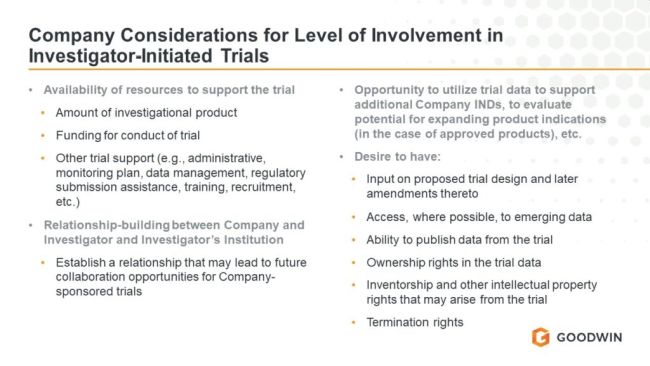Investigators interested in rare disease treatment development have the opportunity to approach drug and biologic developers to obtain investigational drug supply for trials in which the investigators, typically at academic institutions, act as sponsor-investigators. Similarly, companies open to extending their product development pipelines can look to investigator-initiated trials as a mechanism to better understand the overall safety profile for their product candidates while exploring the potential therapeutic utility of their product candidates in diseases where unmet medical needs remain. So often, those needs exist in rare diseases where populations are small and investment returns are difficult to project. Drug developers deciding whether to supply investigational products to sponsor-investigators looking to explore therapeutic potential in areas of their research interests should evaluate what level of involvement to exercise over the investigator-initiated trial. We highlight some of these considerations below.

Ultimately, drug developers hold the decision-making power over whether to allow investigator-initiated research for their product candidates. Thereafter, the contracting process around the setup of an investigator-initiated trial and clinical supply agreement provides drug developers the opportunity to negotiate their level of involvement in the research of their candidates. In negotiating the setup of investigator-initiated research supply, drug developers often balance their support of research into what are often unmet needs with limited company resources, limited supply that may be available and any potential risks that may flow from trial learnings in the proposed disease space. As an upside, investigator-initiated trials afford developers the opportunity to extend their research reach and product development pipelines, so any interest by investigators to conduct research with industry candidates warrants consideration.
The content of this article is intended to provide a general guide to the subject matter. Specialist advice should be sought about your specific circumstances.



